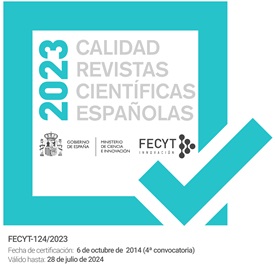The aim of this study is to analyse the incentives for Spanish organisations that have adopted a voluntary code of conduct such as the United Nations Global Compact – GC. In the light of the sociological approach of neoinstitutional theory, we sought to determine the main isomorphic processes that result from joining the GC and factors of the institutional field that might undermine the legitimacy of organisations participating in this voluntary initiative.
On the one hand, the main results, while not conclusive, showed that Spanish participants in the GC have more than one reason for joining the initiative. The study's findings suggest that both institutional processes of mimetic isomorphism and normative isomorphism explain participation in the GC, which emphasizes the improvement in employee satisfaction, an improvement in customer satisfaction and also the fact of being part of sustainable development efforts.
On the other hand, it can be asserted that the respondent organisations do not perceive major threats from the institutional environment that might undermine the legitimacy gained by joining the GC. Nonetheless, the Spanish organisations participating in the GC highlight the fact that the main institutional factor that might undermine the organization's legitimacy is weak governance and corruption.
El presente trabajo examina la incidencia que la adopción del Pacto Mundial de Naciones Unidas –PM– ha tenido en organizaciones españolas. En concreto, el objetivo es aportar evidencia sobre las motivaciones que impulsan a un grupo de entidades a participar en esta iniciativa voluntaria. Basándonos en el enfoque sociológico de la teoría neoinstitucional, analizamos los principales procesos de isomorfismo resultantes del proceso de adhesión, así como aquellos factores del entorno institucional que pueden llegar a mermar su legitimidad.
Los resultados, aunque no concluyentes, muestran que las organizaciones españolas tienen más de una razón que justifica su participación en la iniciativa del PM. De acuerdo con los datos obtenidos, los procesos de isomorfismo mimético e isomorfismo normativo explicarían las razones de la adhesión. “Aumentar la satisfacción de los empleados”, “sentirnos parte de los esfuerzos en pos del desarrollo sostenible” y “aumentar la satisfacción de los clientes”, son las opciones que mayor índice de respuesta han obtenido.
En relación a los factores institucionales que pueden llegar a mermar la legitimidad de las organizaciones adheridas al PM en nuestro país, las organizaciones encuestadas afirman que el principal factor institucional estaría relacionado con la gestión pública débil y la corrupción.
Acknowledgements: We especially thank professors, Karmele Fenández, Joxemari Sarasola, Maite Espi, Mariano Moneva and José Miguel Rodríguez Fernández for their suggestions. We also thank the participants in the 8th Spanish Conference on Social and Environmental Accounting Research (Spanish CSEAR), Burgos, July 2011 for their comments; and the organizations that participated in the study. We also thank two anonymous referees whose comments were of great help in imporoving the patper. This reserach is part of the finance research projects: EHU 09/35 (University of the Basque Country) and GIC 10/30 (Basque Country Government).






